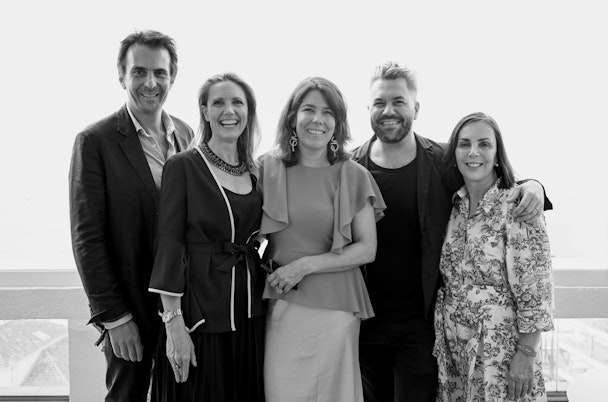Does the Uncommon-Havas deal make financial sense?
Uncommon’s sale of a majority stake to Havas is a great result for its founders, but might not be quite what it seems, writes Green Square’s Barry Dudley.

/ Havas
There’s been plenty written about how Uncommon will ‘bring new energy’ to Havas and the work that made its creative reputation but what of the deal itself, the structure, the heady numbers? That's where I come in.
As is usually the case there is very little disclosed, which means the information void gets filled with assumptions and guesses. Completely understandable. But I thought I’d use some EI to delve into things – that’s right, EI not AI: experience intelligence.
Let’s start with the official Havas release: "The Uncommon founders will retain a material stake in the business (49%), maintaining their entrepreneurial zest, growing their brand globally and sharing best practice across Havas and parent company Vivendi, a world leader in media, entertainment, and communication."
Advertisement
This landmark deal reflects the entrepreneurial approach of Havas and bucks the industry standard deals – valuing the future potential of Uncommon at £80-£120m considering their projected growth plans. Uncommon will retain its brand, vision and freedom to make its own decisions across its client partners, internal team and creative output in this exciting next stage of growth for the studio.”
What does my EI make of ‘entrepreneurial approach’?
Havas has bought 51%. As this is a majority it means that it can bring 100% of Uncommon’s results into its group numbers. Pretty smart. But why is it entrepreneurial?
Advertisement
I think there are a number of factors: The management team still holds equity, it remains owners of a substantial part of the business. They will feel that it still belongs to them. The mindset and outlook of an owner is very different to that of an employee.
This ownership maintains their status as entrepreneurs, they haven’t sold out.
But they are entrepreneurs that have also reset their personal lives by realizing a healthy lump of value. Surely they will relax a little now?
For Uncommon I think it will be quite the opposite. Their appetite for being entrepreneurial, for taking risks, will be higher – they are no longer betting the farm as they were when everything sat on their shoulders. And there’s still 49% to be realized at some stage.
The phrases "valuing the future potential" and ‘considering [Uncommon’s] projected growth plans’ were the next things to get the EI twitching. For those of you easily shocked or disheartened, you should stop reading now. Uncommon’s founders have not sold their business for ‘£80m-£120m’.
So where do these fabulous numbers come from?
The ‘future’ is six years from now, which I assume is a time when Havas has agreed that management could sell more of their equity. If over those six years, Uncommon has delivered ‘their projected growth plans’ the business will undoubtedly be significantly bigger than it is right now.
Suggested newsletters for you
Apply an agreed valuation multiple to that business and you get to £80m-£120m. That’s a value six years from now, assuming significant growth and it’s for 100% of the business (51% of which has already been sold).
It sounds like my EI is trying to make out that this isn’t a great deal. That’s not the case. To save you doing the maths, at the upper end, selling the remaining 49% at a valuation of £120m would give them £58.8m! And I would not be surprised if the Uncommon team smash their own growth plans and the numbers get even bigger.
But this maths is still quite hard to comprehend, so I thought I’d make the EI work a little harder.
Uncommon’s last filed financial statements were for the year ending 31 December 2021. It had a turnover of £26.8m, gross profit (or net revenue) of £11.6m which was 50% up on the prior year, and an operating profit of £1.6m.
If you add back depreciation to the operating profit you get to an EBITDA that is probably around £1.8m – that’s a margin on gross profit of 15.5%. And the average monthly number of employees for 2021 was 63.
According to LinkedIn Uncommon now has 168 ‘employees’. This will include contractors and freelancers, so I’m going to take an EI guess that Uncommon’s average monthly number of employees for 2022 was 95 – ie, it grew by 50% again. Maintaining this level of growth is going to be very hard to sustain even if it conquers the US as I believe it hopes to.
If, say, the business then grows at 20% a year from 2022, the gross profit in 2028 would be £52m. At 30% a year, it would be a “mere” £84m. And let’s assume the EBITDA margin improves over that time from 15.5% to 17.5% as the Havas corporate expertise is leveraged. That would give a range of £9.1m to £14.7m for EBITDA in 2028. Apply an eight to 10 multiple…
Lots of assumptions on assumptions, but that’s what growth plans have to be built on. Only time will tell if this rather distracting future valuation becomes a reality.
Fingers crossed for Uncommon and Havas.
Barry Dudley is a partner at Green Square.

